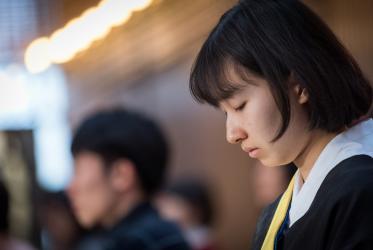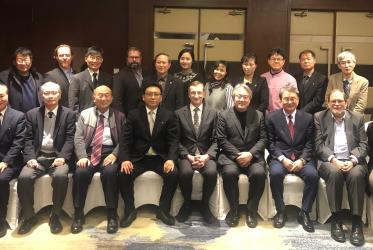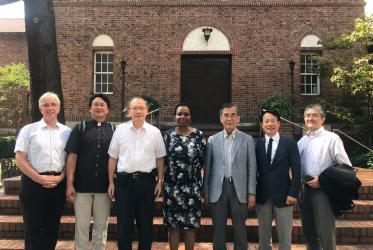Displaying 101 - 120 of 339
27 February 2020
Churches should use their voice on climate change
26 February 2020
CCIA meets in Brisbane with focus on Pacific regional priorities
19 February 2020
Worldwide prayer campaign begins to end 70-year Korean War
06 February 2020
Religious leaders keep vision of peace alive on Korean Peninsula
10 December 2019
Eco-School promotes blue communities, green churches
19 November 2019
WCC delegation meets with Korean prime minister
19 November 2019
Tveit: “Love is about the future: Where are we going from here?”
17 November 2019
The cry of the Papuans in Indonesia
14 November 2019
WCC Eco-School begins in Thailand
07 November 2019
In Japan, spirit of koinonia deepens
26 September 2019
WCC gravely concerned for West Papua
25 September 2019








